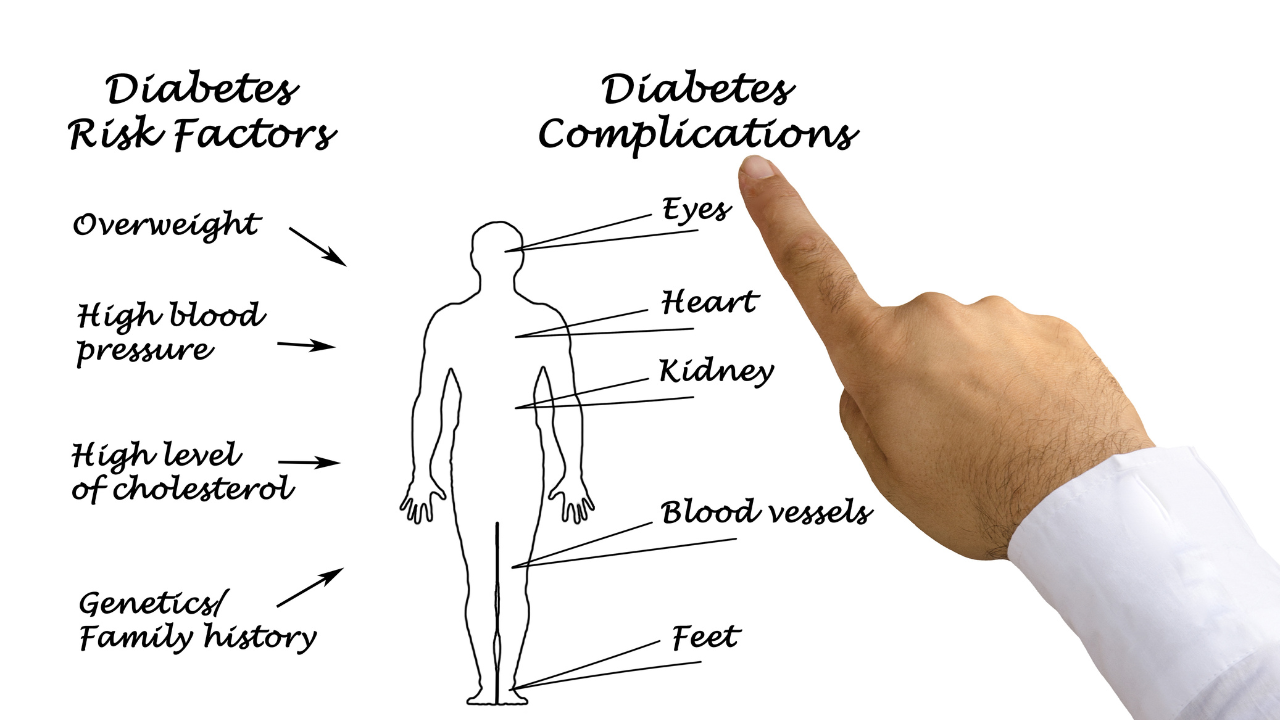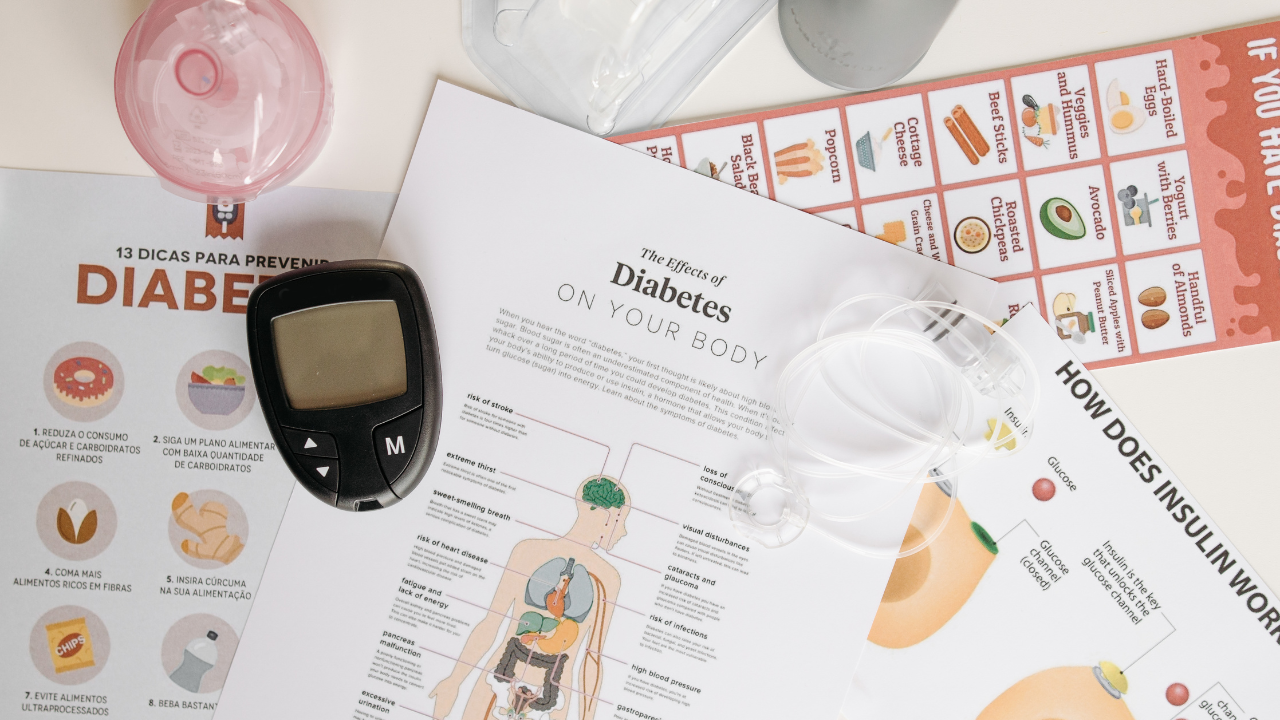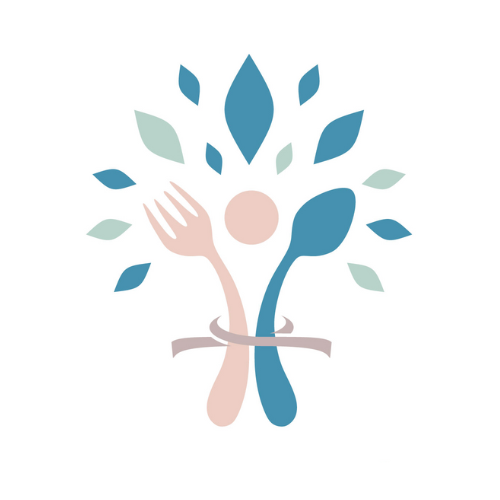
08 May How to Reverse Type 2 Diabetes: Your Complete FAQ Guide
Understanding diabetes is the first step toward controlling it and potentially achieving remission. In this FAQ guide, we answer common questions about type 1 and type 2 diabetes, explain complications, and highlight lifestyle strategies that can help reverse type 2 diabetes naturally.
What Causes Diabetes?
Type 1 Diabetes
Type 1 diabetes occurs when the body’s immune system attacks the pancreas, reducing its ability to produce insulin. Insulin is the hormone that moves glucose (sugar) from the blood into the body’s cells for energy. The exact trigger is often unknown, but viral infections and genetic factors are thought to play a role.
Type 2 Diabetes
Type 2 diabetes develops gradually over years and is often linked to being overweight, poor diet, and sedentary lifestyle. The pancreas becomes overwhelmed, and insulin resistance develops, meaning the body cannot effectively use insulin to regulate blood sugar. Certain medications can also raise blood sugar levels. Type 2 diabetes may progress silently, with symptoms appearing only after years of elevated blood sugar.
What Are the Symptoms of Diabetes?
The most common symptoms of type 2 diabetes include:
- Frequent urination
- Increased thirst
- Persistent tiredness
- Unexplained weight loss (sometimes)
Symptoms may be mild in early stages, which is why regular blood sugar monitoring is important for at-risk individuals.

How Does Diabetes Affect the Body?
Blood glucose levels must be kept within a narrow range to maintain health. When levels remain high, as in diabetes, it can gradually affect multiple organ systems. Complications may not appear immediately but can accumulate over time.
Common Early Complications
- Eyes: High blood sugar damages small blood vessels, leading to retinopathy. Annual eye screenings are recommended to catch early changes.
- Kidneys: Sugar damages the small blood vessels in the kidneys, impairing filtration. Diabetes is a leading cause of end-stage kidney disease. Kidney function is checked yearly via blood and urine tests.
- Legs and Feet: Poor circulation and nerve damage can lead to numbness, ulcers, infections, and in severe cases, amputation. Regular foot checks are essential.
- Erectile Dysfunction: Damaged blood vessels can impair erections, often signalling early vascular damage.
Long-Term Complications
Over time, diabetes can damage larger blood vessels, increasing the risk of heart attacks, strokes, and other cardiovascular problems. This can significantly affect health and independence.
Can Diabetes Be Cured?
While type 1 diabetes currently has no cure, type 2 diabetes can be put into remission. Remission means blood sugar returns to normal levels without medication. This is not a permanent cure—lifestyle or weight changes can trigger a relapse—but it offers hope for many patients.
Remission is more achievable through lifestyle changes than medication alone. Factors influencing success include:
- Duration of diabetes
- Existing health conditions
- Number of medications being taken
Rapid reductions in blood sugar should be supervised by a healthcare professional, especially if medication is involved. Our clinic supports patients safely through this process.
Which Type of Diabetes Requires Insulin?
Type 1 diabetes patients require insulin because their pancreas cannot produce enough. Some people with advanced type 2 diabetes may also need insulin, but this does not mean type 2 has “turned into” type 1. Insulin helps manage blood sugar when other treatments are insufficient.
Which Type of Diabetes Is Worse?
Both types lead to high blood sugar and similar long-term complications. Type 1 can be harder to manage because of the risk of hypoglycaemia (low blood sugar), while type 2 often comes with additional conditions such as fatty liver and high blood pressure. Lifestyle changes can often achieve remission in type 2 diabetes, improving quality of life significantly.

Does Diabetes Cause Sugar Cravings?
Contrary to popular belief, sugar cravings are not a direct symptom of diabetes. High blood sugar is typically the cause, not low sugar. Frequent consumption of carbohydrates may lead to blood sugar swings, which can trigger cravings. True low blood sugar is usually a result of insulin or other glucose-lowering medications.
Will Diabetes Kill Me?
It is the complications of diabetes, especially cardiovascular disease, that can reduce life expectancy. Diabetes can also affect quality of life due to nerve damage, kidney disease, and vision problems. This is why preventative medicine, lifestyle changes, and blood sugar control are critical for long-term health.
For more guidance on lifestyle strategies to reverse type 2 diabetes, watch Dr Nerys’ 3-Part Health Breakthrough Video Series and download the Blood Sugar Guide PDF.
